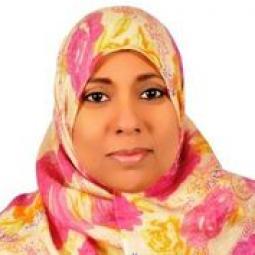OWSD Member in SciDev.Net Debate on Gender and COVID-19
April 22, 2020
OWSD Member Dr Blessing A. Odogwu was invited by SciDev.Net to be part of a panel debate titled ‘Should gender analysis be embedded in epidemic responses?’
By Dr Blessing A. Odogwu
SciDev.Net is the world’s leading source of reliable and authoritative news, views and analysis about science and technology for global development. I was invited following my article on the OWSD website, ‘Wearing our gender lens in research design and development’. The reason for the debate was because policy responses often fail to consider how gender and epidemics interact. Health policies that fail to recognize the different needs of genders cannot effectively mitigate the impacts of pandemics, such as the novel coronavirus. We debated why gender analysis must be central in global health emergencies. The debate was conducted on Wednesday, 22 April from 2pm-3pm.
The panelists were:
- Sarah Hawkes: professor of global public health, University College London Institutional Research Information Service; co-founder and co-director of Global Health 50/50.
- Roopa Dhatt: executive director and co-founder, Women in Global Health; internal medicine physician.
- Giampiero Favato: director, Institute of Leadership and Management in Health, Kingston Business School, Kingston University London; editor of the American Public Library of Science journal PLOS ONE.
- Blessing A. Odogwu: Plant Science and Biotechnology lecturer, University of Port Harcourt; member of the Organization for Women in Science for the Developing World (OWSD).
In that special SciDev.Net debate, questions we considered were as follows:
Are more men dying of COVID-19 than women? Are women at greater risk of violence in lockdown? In stretched health systems, who will receive priority care and who could miss out? Do diagnostics, treatments and vaccine trials take gender into consideration? Does personal protective equipment keep everyone equally safe? And why is sex-disaggregated data central to all these questions?
My highlights from the debate: All debate panelists agreed that gender analysis should be embedded in epidemic responses because the data from previous epidemics like ebola epidemics, has provided evidence that has guided the development and deployment of interventions during this COVID-19 pandemic. Still it was observed that most gender groups especially women are vulnerable and may be facing barriers that will prevent them from having access to these interventions such as food palliatives, vaccine trials etc. What makes gender groups vulnerable and the barriers that are thwarting their access to interventions can only be identified through gender analysis. One the high points was when Roopa Dhatt pointed that there are concerns that the personal protective equipment was designed for men and was predisposing women health workers to COVID-19 infection. Also, the evidence from previous data has seen more women from women-in-science and women-based organizations such as OWSD coming up with innovative ideas to enhance the adaptive capabilities of vulnerable groups to cope during this COVID-19 pandemic. It is believed that incorporating gender analysis in the COVID-19 fight will provide data that will be useful in future pandemics.
Contact Details
Department of Plant Science and Biotechnology,
University of Port Harcourt, Rivers State
Nigeria
Email: blessing.odogwu@uniport.edu.ng
LinkedIn: Blessing Nwokocha
Twitter: @blessing.odogwu
Blog: @blessingodogwu.blogspot.com
ORCID: orcid.org/0000-0001-8145-027











































